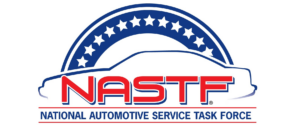Proud Member of NASTF


If you own a diesel-powered vehicle, you know that proper maintenance is key to keeping your engine running smoothly. Diesel engines are known for their durability and efficiency, but they also require a different level of care compared to their gasoline counterparts. From regular oil changes to fuel system maintenance, there are several essential tips that can help you extend the life of your diesel engine and avoid costly repairs. In this blog post, we will guide you through the essential maintenance tasks and provide you with valuable tips to ensure your diesel engine runs smoothly for years to come. Whether you’re a seasoned diesel owner or new to the world of diesel engines, this comprehensive guide will equip you with the knowledge and tools necessary to keep your engine in top shape.
Understanding the basics of diesel engine maintenance is crucial for keeping your engine running smoothly and avoiding costly repairs down the line. One of the key aspects of diesel engine maintenance is regular oil changes. Diesel engines tend to have higher compression ratios and operate at higher temperatures, leading to increased wear and tear on engine components. Changing the oil at recommended intervals helps to remove contaminants, prevent sludge buildup, and ensure proper lubrication for all moving parts. Another important aspect is fuel system maintenance. Diesel fuel contains impurities that can clog fuel filters and injectors over time. Regularly inspecting and replacing fuel filters can help maintain fuel efficiency and prevent engine damage. Additionally, using high-quality diesel additives can help clean and lubricate the fuel system, promoting better combustion and reducing the risk of injector clogging. Proper cooling system maintenance is also essential. Diesel engines generate a significant amount of heat, and a malfunctioning cooling system can lead to engine overheating and potential damage. Regularly checking coolant levels, inspecting hoses and belts for wear or leaks, and flushing the cooling system at recommended intervals are all crucial steps to ensure optimal engine performance and longevity. Lastly, paying attention to the air intake system is vital. Diesel engines require a steady supply of clean air for efficient combustion. Regularly inspecting and cleaning or replacing air filters can prevent debris and contaminants from entering the engine, improving fuel efficiency and reducing the risk of engine damage. By understanding and implementing these basics of diesel engine maintenance, you can ensure that your engine remains in top shape, providing reliable and efficient performance for years to come.
Regular oil changes and filter replacements are essential for keeping your diesel engine running smoothly. Oil acts as a lubricant for the engine parts, keeping them moving freely and preventing excessive wear and tear. Over time, oil can become dirty and lose its effectiveness, which is why it’s important to change it regularly. The frequency of oil changes will depend on the specific make and model of your vehicle, as well as your driving conditions. As a general guideline, it’s recommended to change the oil every 3,000 to 5,000 miles or every three to six months, whichever comes first. However, if you frequently drive in harsh conditions such as extreme heat or dusty environments, more frequent oil changes may be necessary. When changing the oil, make sure to also replace the oil filter. The oil filter helps remove contaminants from the oil, preventing them from circulating through the engine. Over time, the filter can become clogged with dirt and debris, affecting its ability to effectively filter the oil. By replacing the oil filter at every oil change, you can ensure that your engine receives clean oil, prolonging its lifespan and maintaining optimal performance. It’s important to use the right type of oil and filter for your diesel engine. Consult your vehicle’s owner manual or consult with a professional mechanic to determine the recommended oil viscosity and filter specifications for your specific engine. Using the wrong type of oil or filter can negatively impact engine performance and potentially cause damage. Regular oil changes and filter replacements should be part of your diesel engine maintenance routine. By following these essential tips, you can keep your engine running smoothly, improve fuel efficiency, and extend the lifespan of your vehicle. Don’t neglect these simple maintenance tasks – they will go a long way in ensuring the reliability and performance of your diesel engine.
Proper fuel system maintenance is crucial for keeping your diesel engine running smoothly and efficiently. Neglecting this aspect can lead to decreased performance, increased fuel consumption, and even engine damage. To ensure the longevity and optimal performance of your diesel engine, here are some essential tips for fuel system maintenance and care. First and foremost, it is essential to use high-quality diesel fuel from reputable sources. Contaminated or low-quality fuel can introduce impurities and deposits into your fuel system, leading to clogged filters and injectors. Regularly inspect the fuel for any signs of water or sediment and drain the fuel/water separator as necessary. Another crucial aspect of fuel system maintenance is changing the fuel filters regularly. These filters are designed to trap impurities and prevent them from reaching the engine. Over time, they can become clogged and restrict fuel flow, resulting in decreased performance. Consult your diesel engine manufacturer’s recommendations for the recommended filter change intervals and adhere to them diligently. Additionally, it is important to keep the fuel tank clean to prevent any debris or contaminants from entering the system. Regularly inspect the tank for any signs of rust or sediment buildup, and clean it as necessary. This will help maintain proper fuel flow and prevent fuel system issues. Furthermore, consider using fuel additives specifically designed for diesel engines. These additives can help clean and lubricate the fuel system components, preventing deposits and corrosion. They can also improve fuel efficiency and reduce emissions. Consult the manufacturer’s instructions for the appropriate additive and usage recommendations. Lastly, consider scheduling regular professional inspections and servicing of your diesel engine’s fuel system. A trained technician can perform thorough diagnostics, clean injectors, and identify any potential issues before they cause significant damage. This proactive approach can save you from costly repairs and keep your engine running smoothly for years to come. By following these essential tips for fuel system maintenance and care, you can ensure the optimal performance, fuel efficiency, and longevity of your diesel engine. Take the time to implement these practices into your routine maintenance schedule and enjoy the benefits of a smoothly running engine.
In addition to regular maintenance, there are several additional tips you can follow to ensure the longevity and optimal performance of your diesel engine. One crucial aspect is fuel quality. Using high-quality diesel fuel is essential as it helps prevent the buildup of deposits in the fuel injectors and combustion chambers, which can degrade engine performance over time. Additionally, using a fuel additive specifically designed for diesel engines can further enhance fuel quality and improve engine efficiency. Proper engine warm-up is another important factor to consider. Diesel engines operate more efficiently when they reach their optimal operating temperature. Therefore, it is recommended to let your engine idle for a few minutes before driving off, especially in cold weather. This allows the engine oil to warm up and circulate throughout the engine, reducing wear and tear on critical components. Regularly inspecting and cleaning the air filters is crucial for ensuring proper airflow into the engine. Clogged or dirty air filters can restrict airflow, leading to a decrease in engine performance and fuel efficiency. It is recommended to check the air filters periodically and replace them when necessary. Furthermore, maintaining clean and proper coolant levels is vital for preventing overheating and engine damage. Make sure to regularly check the coolant level and inspect the coolant for any signs of contamination. If needed, flush the cooling system and replace the coolant as per the manufacturer’s recommendations. Lastly, consider investing in a good quality diesel fuel filter and regularly replace it as recommended by the manufacturer. A clogged fuel filter can restrict fuel flow, leading to decreased engine performance and potential damage to the fuel injectors. By following these additional tips for diesel engine longevity and performance, you can ensure that your engine continues to run smoothly and efficiently for years to come. Remember, preventive maintenance is key to avoiding costly repairs and maximizing the lifespan of your diesel engine.
We hope you found our blog post on diesel maintenance helpful. Taking care of your diesel engine is essential for its longevity and optimal performance. By following the tips provided in our article, you can ensure that your engine runs smoothly for years to come. Remember to schedule regular maintenance, use high-quality fuel and oil, and pay attention to signs of potential issues. If you have any further questions or need assistance, please don’t hesitate to reach out to a qualified diesel mechanic. Happy driving!




